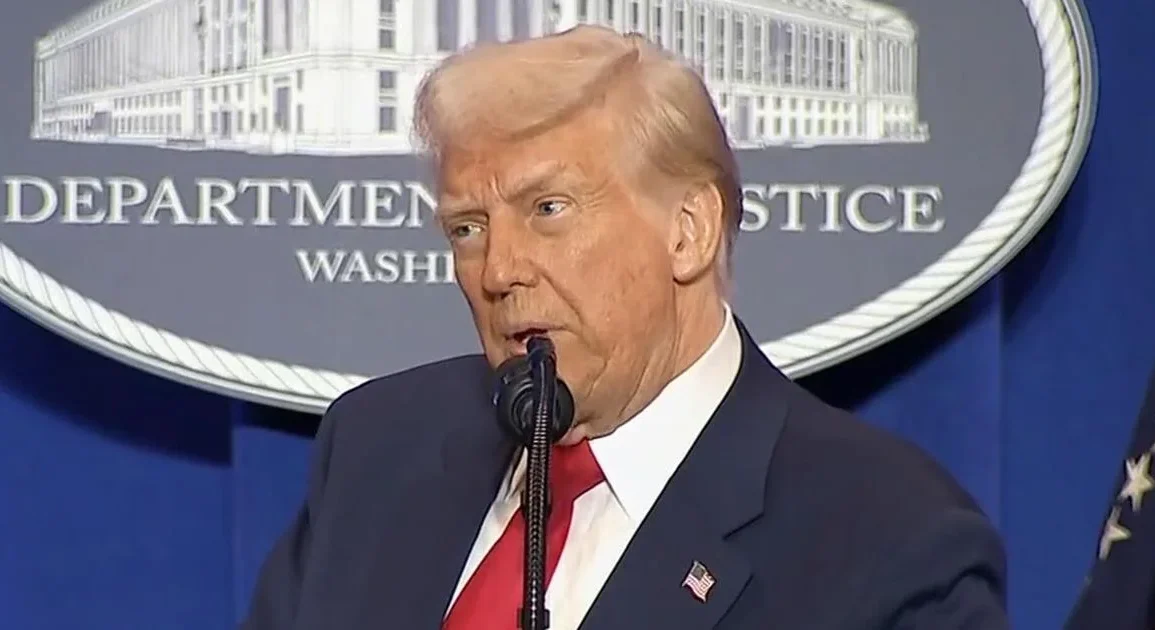On Friday, President Donald Trump outlined his vision for the Department of Justice and the FBI in a speech focused on law and order, which closely resembled a political address.
Speaking for approximately an hour, Trump recounted his past grievances with these agencies, criticizing both career, non-political employees and his predecessor, Joe Biden.
His remarks extended beyond justice-related topics, touching on issues such as his “landslide” victory in 2024, the cost of eggs, a proposed ceasefire in Ukraine, and the resilience of legendary college basketball coach Bob Knight.
Historically, past presidents have sought to maintain the independence of the FBI and DOJ to prevent political interference.
“I was asked to do it, and I said, is it appropriate that I do it?” Trump stated. “And then I realized, it’s not only appropriate, I think it’s really important.”
Trump launched into sharp criticism of his adversaries within the agencies.
“I will insist upon and demand full and complete accountability for the wrongs and abuses that have occurred,” he declared to agency workers and supporters, including his former national security adviser Michael Flynn—who was convicted of lying to FBI agents and later pardoned by Trump—as well as Texas Attorney General Ken Paxton investigators.
Trump accused the DOJ and FBI of having “spied on my campaign, launched one hoax and disinformation operation after another.”

He further asserted that they “broke the law on a colossal scale.”
Trump delivered his remarks inside the DOJ building, where in 2023, former special counsel Jack Smith had filed two cases against him.
However, Smith later dropped the charges after Trump was re-elected, which stemmed from allegations regarding the January 6, 2021, U.S. Capitol attack and the mishandling of classified documents at his Mar-a-Lago estate in Florida.
Upon resuming office on January 20, Trump pardoned those convicted for the Capitol riot, describing them as “political prisoners who had been grossly mistreated.”
On Friday, he spoke beside 180 kilos of counterfeit fentanyl, next to a box labeled in capital letters, “DEA evidence.”
Trump described himself as the “chief law enforcement officer in our country” and emphasized that he had two trusted allies in position—Attorney General Pam Bondi and FBI Director Kash Patel. Bondi introduced Trump at the event.
He expressed his intention to remove what he called “rogue actors and corrupt forces” from the government.
“We will expose, and very much expose, their egregious crimes and severe misconduct, of which was levels you’ve never seen anything like it,” Trump stated.
“It’s going to be legendary,” he continued. “It’s going to also be legendary for the people that are able to seek it out and bring justice.”


